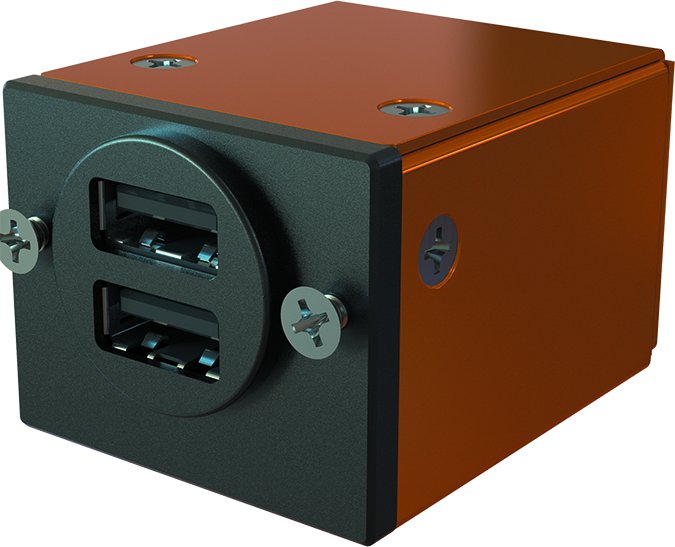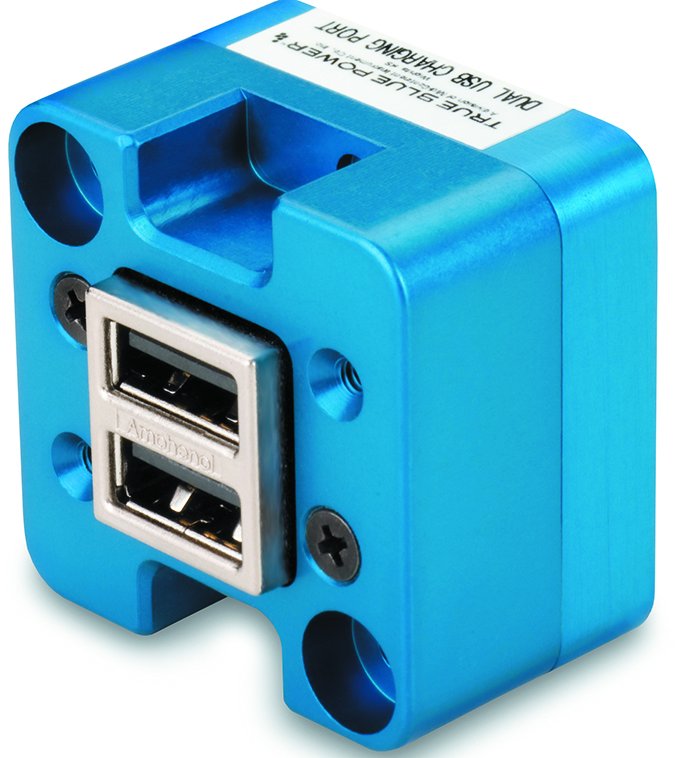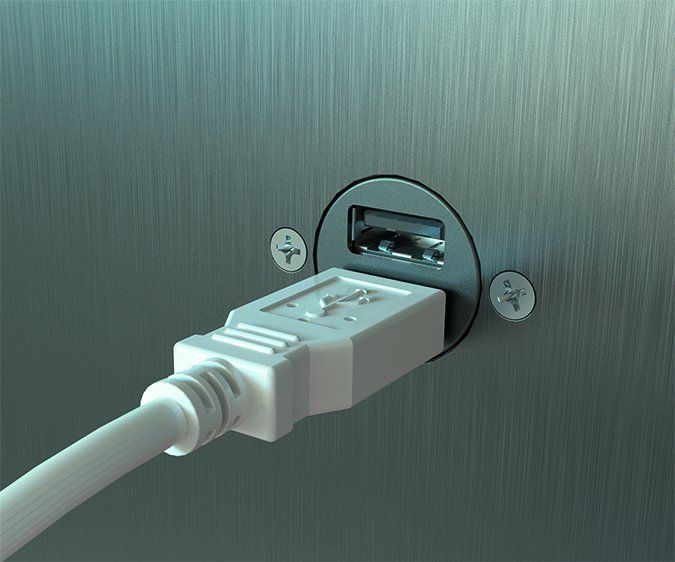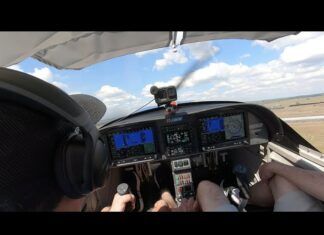Since tablets, smartphones and portable ADS-B units are integral to our flying, USB charging devices have become necessary inflight accessories. You could carry along a portable USB power supply, but if you’re like us, you might forget to recharge it—if you can remember where you left it.
Both Guardian Avionics and True Blue Power (from Mid-Continent Instruments and Avionics) have the most complete line of panel-mounted USB power supplies engineered specifically for installation in aircraft.
Guardian iFDR Power
The iFDR Power panel USB devices are available with either a single USB port ($249 for the Power 150) or dual USB ports ($299 Power 250). The devices are available in several versions, depending on where and how you want to mount them. For example, you can remove the existing cigar lighter socket and mount the iFDR Power in its place using the existing socket wiring (a simple power and ground interface) or you can start fresh and cut a round or square hole on the instrument panel. With the remote version, there is flexibility for mounting it in the rear cabin.
Each USB port has 2.1 amps (10 watts each) of output current with 5 volts DC of output voltage. Those specs are significant because some low-cost USB power adapters sourced in automotive and hardware stores might not have the appropriate stepdown output voltage. That means you can inadvertently zap your device with 28 (or 14) volts of power. The iFDR Power modules can accept between 9 and 48 volts DC input voltage, but are smart and stable enough to still output 5 volts of power from each port.

The other gotcha with non-aviation USB power supplies is the potential for EMI, or electromagnetic interference. This can induce unwanted noise into the aircraft audio system. The iFDR Power devices have built-in EMI protection, have green LED backlighting for use at night and are designed to not overcharge the device.
Guardian says the installation can be signed off with a logbook entry (no field approval is required) because it has a letter of authorization from the FAA stating the devices meet the design and performance requirements of FAA policy PS-AIR-21.8-1602 for non-required safety enhancing equipment, known as NORSEE. That saves time.
The iFDR Power is also available with a chassis that mounts to the base of Guardian’s iFDR tablet panel dock mount. Contact Tucson, Arizona-based Guardian Avionics.
True Blue, Lone Star
The $379 True Blue Power TA102 is a dual-port USB panel-mounted charger that will accept 10 to 32 volts DC input and outputs 2.1 amps per port. It has short circuit and over-current (and over-temp) protection. Sold in both lighted and sealed water-resistant configurations, parent company Mid-Continent Instruments and Avionics says the device might require an FAA field approval if the aircraft doesn’t have an existing cigar lighter socket.

We like that the TA102 has wiring input on the bottom of the case to facilitate installation in tight areas—helpful for the rear cabin. The TA202 has wiring input on the rear of the case for panel mounting. Contact True Blue Power.
Lone Star Aviation offers the $750 LS03 iPad charging kit, which includes a remote 28 volt to 5 volt DC stepdown converter, plus a single-port USB socket. The MS-USB plug has an anodized aluminum chassis and is dust-proof. We wish the converter was self-contained and had dual outputs. Contact Lone Star Aviation, Corp.
Stick It in the Socket
Worth mentioning is the long-standing FAA airworthiness directive (AD 79-08-03) that applies to a wide variety of Cessna models with original equipment cigar lighter adapters. It requires adding appropriate circuit protection between the socket and the electrical bus so it doesn’t smoke the associated wiring bundle. We’ve seen many instances where the AD wasn’t complied with and where the socket was simply disabled.
If you have a functioning cigar lighter socket and want an alternative to permanently mounted USB ports, we’ve been using the $30 DualMicro USB rapid charge device sold by MyGoFlight. It works in both 14- and 28-volt systems, has two 2.4-amp USB ports and the company says it was tested to not interfere with onboard radios. This obviously won’t do you any good for installation in the rear cabin.
For price and installation flexibility (including the ability to sign it off with a simple logbook entry), we favor the Guardian iFDR Power.


